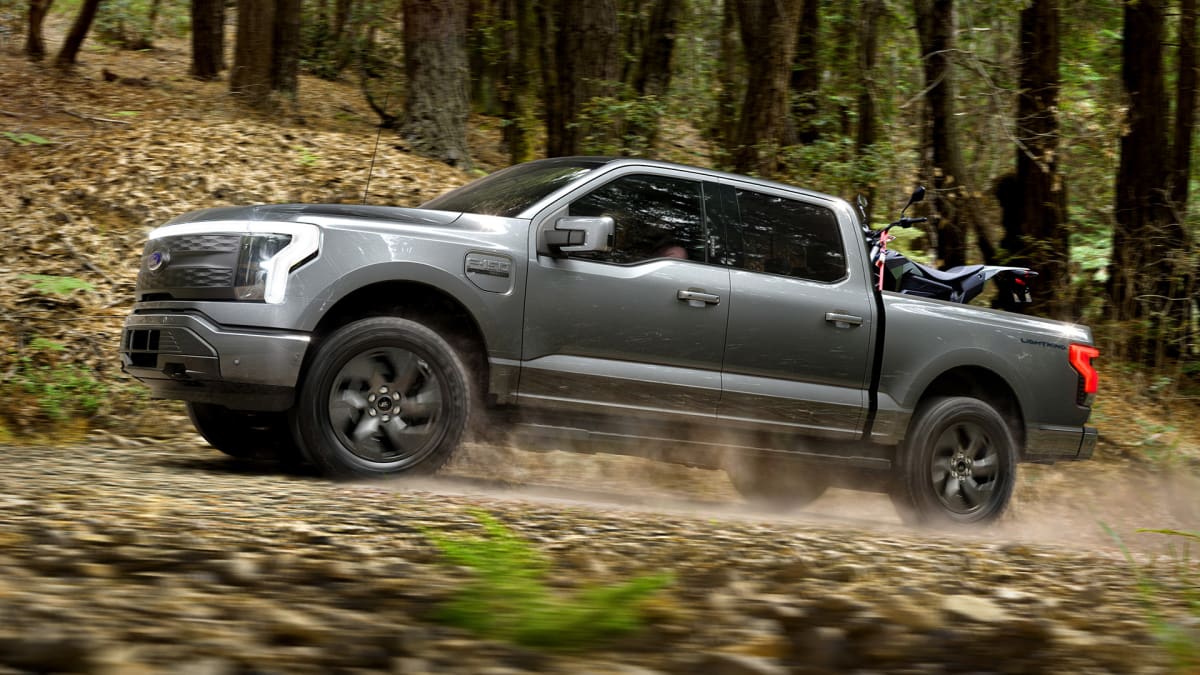
The dark streak for Ford Motor continues.
The automaker, which wants to accelerate development of electric vehicles to catch up with Tesla, has been delayed by a number of problems.
For last year the company posted a net loss of $2 billion, a showing that didn't sit well with Chief Executive Jim Farley.
"We should have done much better last year,” Farley said in the earnings statement on Feb. 2. "We left about $2 billion in profits on the table that were within our control, and we’re going to correct that with improved execution and performance.”
DON'T MISS: Ford Puts Gasoline Cars on Life Support in Europe
Chief Financial Officer John Lawler had sent the same message: "Our performance in 2022 was below our expectations, and our industrial platform is frankly not where we need it to be," he told analysts during the 2022 fourth-quarter-earnings call.
'A Potential Battery Issue' With the F-150
Lawler continued: "By better executing the things we control, we should have generated as much as $2 billion more in adjusted [earnings before interest and taxes].
"For example, the instability of our supply chain and production plans caused us to not only deliver lower-than-planned volumes in the fourth quarter but also incur higher costs through premium freight and other supplier charges."
The executive said that Ford (F) fell short of expected sales by 100,000 units, equating to about $1 billion in missed earnings.
Only a few days after these statements, Ford has indicated that it will suspend production and shipment of the F-150 Lightning, the electric version of the iconic F-150 pickup. The move reflects a possible problem with the vehicle's battery pack.
"As part of our predelivery quality inspections, a vehicle displayed a potential battery issue and we are holding vehicles while we investigate," Ford told The New York Times in a statement.
We are suspending production at the Rouge Electric Vehicle Center through at least the end of next week.
"During a standard Lightning pre-delivery quality inspection, one vehicle displayed a battery issue," a spokesperson said in an emailed statement. "We believe we have identified the root cause of this issue."
The spokesperson added that: "By the end of next week, we expect to conclude our investigation and apply what we learn to the truck’s battery production process; this could take a few weeks. We will continue holding already-produced vehicles while we work through engineering and process updates."
Ford did not elaborate on the problem and it does not know when things will return to normal.The company last week made the decision to stop shipments and production.
No Incidence
"We are not aware of any incidents of this issue in the field and do not believe F-150 Lightnings already in customers’ hands are affected by this issue," the spokesperson said.
In addition, Ford didn't stop selling the vehicle. Basically, dealers can continue to sell the vehicles they currently have in their inventory.
The F-150 Lightning is the latest electric vehicle to suffer from a battery problem. From September 2021 to the first months of 2022, General Motors (GM) had stopped production and shipments of the Chevrolet Bolt after the discovery of a manufacturing defect that caused fire outbreaks.
GM replaced the battery packs before resuming production of the Bolt, its first EV.
According to experts, due to the high-voltage lithium-ion batteries that keep them running, electric vehicles are particularly prone to short-circuiting into a fire. Those fires in turn can be larger and more difficult to control than those typically seen with gas-powered engines.
Car fires are still very rare in the industry overall. Research by insurance firm AutoinsuranceEZ found that electric engines have a 0.03% chance of catching fire while for gas engines have a 1.5% chance.
But given their potential for serious harm, the risk of a car fire can prompt widespread recalls. Back in December 2021, the National Highway Traffic Safety Administration forced Tesla (TSLA) to recall more than 54,000 Model 3 and Model S vehicles.
Suspending production of the F-150 Lightning is a blow for Ford. This vehicle, the first pickup truck aimed at the masses due to its price, is being watched closely in the industry to see if EV adoption is possible beyond affluent consumers.
Ford has been overwhelmed with orders for the F-150 Lightning. The automaker is currently unable to satisfy this strong demand. The vehicle, production of which started last year, is currently being manufactured in small numbers, between 2,000 and 2,400 units per month.
Ford, which also produces the electric sport utility vehicle Mustang Mach-E and the E-Transit, sold a total of 15,617 electric Lightnings in 2022.







